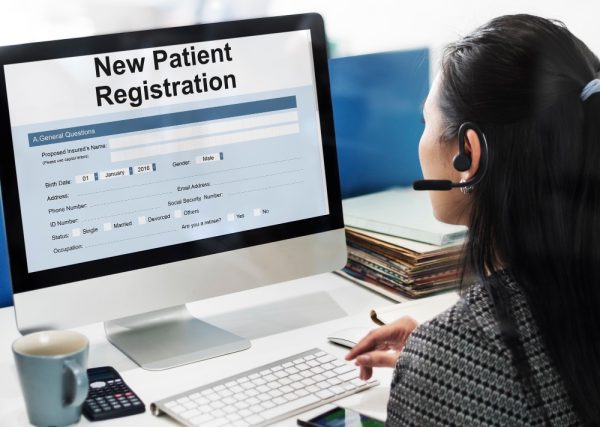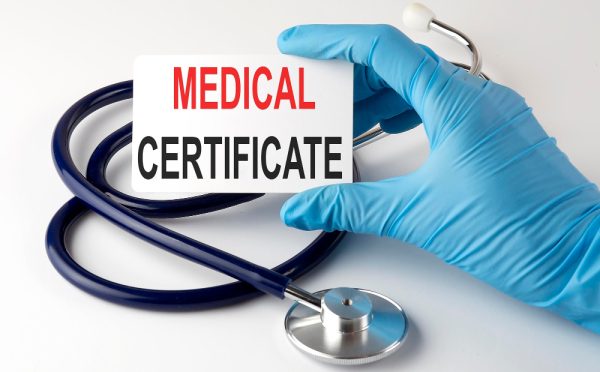 Learning how to become a patient access representative is a smart move if you’re looking to start a healthcare career with strong growth potential and job stability. Patient access representatives help patients during the admissions process by managing personal health records, verifying insurance, and ensuring smooth communication between medical offices and patients. A solid understanding of medical terminology is essential in this role to accurately handle patient information and interact with healthcare professionals. If you have excellent communication skills, attention to detail, and a desire to work in a healthcare office setting, this role can be a great fit.
Learning how to become a patient access representative is a smart move if you’re looking to start a healthcare career with strong growth potential and job stability. Patient access representatives help patients during the admissions process by managing personal health records, verifying insurance, and ensuring smooth communication between medical offices and patients. A solid understanding of medical terminology is essential in this role to accurately handle patient information and interact with healthcare professionals. If you have excellent communication skills, attention to detail, and a desire to work in a healthcare office setting, this role can be a great fit.
Our Services
VMeDx: Intelligent Healthcare Through Virtual Assistance
VMeDx virtual assistants streamline your workflow, reduce expenses, and allow you to concentrate on delivering quality patient care.
What Does a Patient Access Representative Do?
Daily Responsibilities
Patient access representatives perform a mix of administrative tasks and patient-facing services, such as:
Verifying health insurance and patient data
Scheduling medical appointments
Assisting in patient registration
Communicating with healthcare providers and staff using accurate medical terminology
Managing patient medical records and registries
Ensuring HIPAA compliance
Where They Work
You can find patient access reps in various healthcare settings, including:
Hospitals
Outpatient care practices
Medical offices
Specialty clinics
Dental offices
Rehabilitation centers
Why This Role Is in Demand
Industry Growth
According to the Bureau of Labor Statistics, the healthcare industry continues to grow due to an aging population and expanded access to care. Patient access reps are essential in providing administrative support to keep medical operations running smoothly.
Support for Healthcare Professionals
As frontline workers in healthcare office setting, they help reduce bottlenecks in the admissions process and improve the patient experience.
Step 1: Earn Your High School Diploma or Equivalent
A high school diploma or GED is the minimum educational requirement for most patient access representative jobs. Basic knowledge of English, math, and computer use will support your success in the role.
Step 2: Complete a Patient Access Representative Program with Training in Insurance Verification
What to Expect
A patient access representative program typically includes training in:
Medical terminology
Health information management
Electronic health records (EHR)
Communication and call center skills
Insurance verification
Patient billing
HIPAA and legal practices
Programs may be available at:
Community colleges
Technical schools
Online learning platforms
Step 3: Consider National Certification
Top Options
While not required by all employers, certifications can boost your job prospects and earning potential. Common certifications include:
Certified Healthcare Access Associate (CHAA)
Certified Medical Administrative Assistant (CMAA)
These certifications are issued by organizations like the National Healthcareer Association and help validate your knowledge in patient intake management.
Step 4: Take a Medical Terminology Course
A strong understanding of medical terminology course is crucial in this role. As a patient access representative, you’ll use these terms when working with patient records, billing information, and electronic health records. Many certified programs include a terminology module, but standalone courses are also available online or in person..
Step 5: Gain Experience in a Medical Office Environment
Entry-Level Opportunities
You can start by applying for entry-level roles such as:
Medical office assistant
Patient service representative
Patient access representative
Medical receptionist
Or positions that can lead toward becoming a certified medical administrative assistant
These positions allow you to become familiar with the medical office environment; medical office environment explain can help clarify daily workflows, practice patient-focused communication, and learn how to handle patient data and scheduling software.
Step 6: Develop Key Skills for Patient Access Reps
Soft Skills
Strong verbal and telephone communication skills
Ability to provide exceptional customer service
Patient-focused communication
Problem-solving and time management
Technical Skills
Electronic health record simulator familiarity
Medical billing and coding basics
Patient registration software
Handling personal health records securely
Step 7: Understand the Admissions Process
As a patient access representative, you’ll be involved in every step of patient intake. This includes:
Confirming appointments
Verifying dental and health coverage
Ensuring all required forms and medical records are collected
Educating patients about their billing and coverage
In addition to handling patient registration, familiarity with registries personal health records is essential for managing accurate patient information and supporting healthcare providers in delivering effective healthcare services.
Step 8: Learn HIPAA and Healthcare Law Basics
Understanding HIPAA, or the Health Insurance Portability and Accountability Act, is crucial. You must know how to protect patient information, describe practice processes for privacy, and avoid legal violations.
Step 9: Apply for Jobs in the Healthcare System
Where to Search
Hospital HR websites within the healthcare system
Career pages of healthcare providers
Job boards like Indeed or Glassdoor
Staffing agencies for allied healthcare positions
Look for job listings under titles like:
Patient access rep
Patient access representative
Patient service representative
Medical front office assistant
Step 10: Prepare a Healthcare-Focused Resume
Highlight these elements in your resume:
Education (including any patient service representative programs)
Certification (CHAA or CMAA)
Skills in patient care, EHR, insurance verification, and administrative duties
Experience in healthcare settings or call centers
Your ability to communicate effectively with patients and staff
Step 11: Ace the Interview
Expect questions about:
How would you handle a difficult patient as a successful patient access representative?
What steps would you take to verify health insurance and ensure compliance with patient access representative law?
How do you ensure accuracy when managing patient data and electronic health records?
Your understanding of HIPAA and healthcare access management laws.
Practice using clear, patient-focused answers that show empathy and accuracy.
Step 12: Continue Learning and Growing
Patient access representatives who commit to continuous improvement often move into roles such as:
Patient access specialists
Medical billing specialists
Supervisory roles in healthcare facilities
To advance in these positions, many professionals prepare for national certification exams related to healthcare administration and patient access, which validate their skills and enhance career opportunities.
Career Advancement Opportunities
With time and experience, you can:
Enroll in healthcare administration degree programs
Pursue certifications in medical billing or coding
Move into leadership or training roles in healthcare organizations
Common Tools and Technologies You’ll Use
Electronic health records software (e.g., Epic, Cerner)
Patient appointment scheduling systems
Insurance verification platforms
Microsoft Office (Word, Excel, Outlook)
Communication systems for call centers
Traits of a Good Patient Access Representative
Patient, courteous, and attentive
Organized with strong attention to detail
Able to multitask in a fast-paced healthcare setting
Confident when interacting with both patients and medical workers
Benefits of Working as a Patient Access Representative
Entry into the medical field with minimal schooling
Steady demand across healthcare services and healthcare facilities
Opportunities to support and engage with patients
Potential to work in various healthcare settings
Many patient access representatives find rewarding careers working directly within a healthcare facility, where they collaborate with healthcare professionals to ensure smooth patient admission and efficient management of medical records.
Ready to Start Your Healthcare Career?
If you’re ready to take the first step toward becoming a patient access representative, now is the time. Start by enrolling in a certified patient access representative program, gain hands-on experience, and position yourself in one of the most important frontline roles in the healthcare industry.
Take control of your future, train to become a certified patient access representative today.
Your healthcare career begins with the right training and support, don’t wait. Start your journey toward becoming a patient access representative today.


